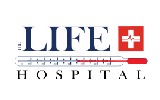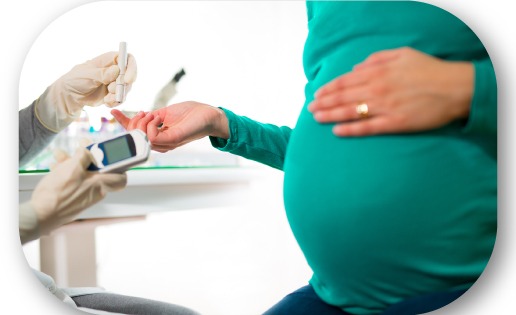Specialized center for Fever Treatment
Fever is a rise in body temperature above the normal temperature, usually caused by infection.
THE LIFE PLUS HOSPITAL Care is COVID 19 Safe
- Our Hospital premises are COVID safe
- Regular sanitization of clinic & hospital premises
- Immediate medical assistance through Online Consultation
Specialized center for Fever Treatment
Fever is a rise in body temperature above the normal temperature, usually caused by infection.
THE LIFE PLUS HOSPITAL Care is COVID 19 Safe
- Our Hospital premises are COVID safe
- Regular sanitization of clinic & hospital premises
- Immediate medical assistance through Online Consultation

Fever
A fever is a temporary increase in your body temperature, often due to an illness. Having a fever is a sign that something out of the ordinary is going on in your body.
For an adult, a fever may be uncomfortable, but usually isn’t a cause for concern unless it reaches 103 F (39.4 C) or higher. For infants and toddlers, a slightly elevated temperature may indicate a serious infection.
Fevers generally go away within a few days. A number of over-the-counter medications lower a fever, but sometimes it’s better left untreated. Fever seems to play a key role in helping your body fight off a number of infections.
Let's Schedule Your Appointment
Treatment

Symptoms
You have a fever when your temperature rises above its normal range. What’s normal for you may be a little higher or lower than the average normal temperature of 98.6 F (37 C).
Depending on what’s causing your fever, additional fever signs and symptoms may include:
- Sweating
- Chills and shivering
- Headache
- Muscle aches
- Loss of appetite
- Irritability
- Dehydration
- General weakness
Our Doctor
Why The Life Plus Hospital?
 The Life Plus Hospital is COVID-19 safe
The Life Plus Hospital is COVID-19 safe
Your safety is taken care of by thermal screening, social distancing, sanitized clinics, and hospital rooms, sterilized surgical equipment, and mandatory PPE kits during surgery.
 Medical Expertise With Technology
Medical Expertise With Technology
Our Doctors spend a lot of time with you to diagnose your condition. You are assisted in all pre-assisted Hospitalisation process. We offer advanced laser and laparoscopic surgical treatment. Our procedures are USFDA approved.
 Assisted Surgery Experience
Assisted Surgery Experience
A dedicated Medical Coordinator assists you throughout the surgery journey from insurance paperwork, to free commute from home to hospital & back and admission-discharge process at the hospital.
 Post Natal Care
Post Natal Care
We offer free follow-up consultations and instructions including dietary tips as well as exercises to every patient to ensure they have a smooth recovery to their daily routines.
The Life Plus Hospital in Numbers
Years Of Expertise
Successful Surgeries
Consultation
Success Rate
Taking a temperature
To take a temperature, you can choose from several types of thermometers, including oral, rectal, ear (tympanic), and forehead (temporal artery) thermometers.
Oral and rectal thermometers generally provide the most accurate measurement of core body temperature. Ear or forehead thermometers, although convenient, provide less accurate temperature measurements.
In infants, doctors generally recommend taking a temperature with a rectal thermometer.
When reporting a temperature to your or your child’s doctor, give the reading and explain how the temperature was taken.
When to see a doctor
Fevers by themselves may not be a cause for alarm — or a reason to call a doctor. Yet there are some circumstances when you should seek medical advice for your baby, your child, or yourself.
Infants
Unexplained fever is a greater cause for concern in infants and in children than in adults. Call your baby’s doctor if your child is:
- Younger than age 3 months and has a rectal temperature of 100.4 F (38 C) or higher.
- Between ages 3 and 6 months and has a rectal temperature up to 102 F (38.9 C) and seems unusually irritable, lethargic or uncomfortable or has a temperature higher than 102 F (38.9 C).
- Between ages 6 and 24 months and has a rectal temperature higher than 102 F (38.9 C) that lasts longer than one day but shows no other symptoms. If your child also has other signs and symptoms, such as a cold, cough or diarrhea, you might call your child’s doctor sooner based on severity.
Children
There’s probably no cause for alarm if your child has a fever but is responsive — making eye contact with you and responding to your facial expressions and to your voice — and is drinking fluids and playing.
Call your child’s doctor if your child:
- Is listless or irritable, vomits repeatedly, has a severe headache or stomachache, or has any other symptoms causing significant discomfort.
- Has a fever after being left in a hot car. Seek medical care immediately.
- Has a fever that lasts longer than three days.
- Appears listless and has poor eye contact with you.
Ask your child’s doctor for guidance in special circumstances, such as a child with immune system problems or with a pre-existing illness.
Adults
Call your doctor if your temperature is 103 F (39.4 C) or higher. Seek immediate medical attention if any of these signs or symptoms accompanies a fever:
- Severe headache
- Unusual skin rash, especially if the rash rapidly worsens
- Unusual sensitivity to bright light
- Stiff neck and pain when you bend your head forward
- Mental confusion
- Persistent vomiting
- Difficulty breathing or chest pain
- Abdominal pain or pain when urinating
- Convulsions or seizures
Causes
Fever occurs when an area in your brain called the hypothalamus (hi-poe-THAL-uh-muhs) — also known as your body’s “thermostat” — shifts the set point of your normal body temperature upward. When this happens, you may feel chilled and add layers of clothing or wrap up in a blanket, or you may shiver to generate more body heat, eventually resulting in an elevated body temperature.
Normal body temperature varies throughout the day — it’s lower in the morning and higher in the late afternoon and evening. Although most people consider 98.6 F (37 C) normal, your body temperature can vary by a degree or more — from about 97 F (36.1 C) to 99 F (37.2 C) — and still be considered normal.
Fever or elevated body temperature might be caused by:
- A virus
- A bacterial infection
- Heat exhaustion
- Certain inflammatory conditions such as rheumatoid arthritis — inflammation of the lining of your joints (synovium)
- A malignant tumor
- Some medications, such as antibiotics and drugs used to treat high blood pressure or seizures
- Some immunizations, such as the diphtheria, tetanus and acellular pertussis (DTaP) or pneumococcal vaccine
Sometimes the cause of a fever can’t be identified. If you have a fever for more than three weeks and your doctor isn’t able to find the cause after extensive evaluation, the diagnosis may be fever of unknown origin.
Complications
Children between the ages of 6 months and 5 years may experience fever-induced convulsions (febrile seizures), which usually involve loss of consciousness and shaking of limbs on both sides of the body. Although alarming for parents, the vast majority of febrile seizures cause no lasting effects.
If a seizure occurs:
- Lay your child on his or her side or stomach on the floor or ground
- Remove any sharp objects that are near your child
- Loosen tight clothing
- Hold your child to prevent injury
- Don’t place anything in your child’s mouth or try to stop the seizure
Most seizures stop on their own. Take your child to the doctor as soon as possible after the seizure to determine the cause of the fever.
Call for emergency medical assistance if a seizure lasts longer than five minutes.
Prevention
You may be able to prevent fevers by reducing exposure to infectious diseases. Here are some tips that can help:
- Wash your hands often and teach your children to do the same, especially before eating, after using the toilet, after spending time in a crowd or around someone who’s sick, after petting animals, and during travel on public transportation.
- Show your children how to wash their hands thoroughly, covering both the front and back of each hand with soap and rinsing completely under running water.
- Carry hand sanitizer with you for times when you don’t have access to soap and water.
- Try to avoid touching your nose, mouth or eyes, as these are the main ways that viruses and bacteria can enter your body and cause infection.
- Cover your mouth when you cough and your nose when you sneeze and teach your children to do likewise. Whenever possible, turn away from others when coughing or sneezing to avoid passing germs along to them.
- Avoid sharing cups, water bottles and utensils with your child or children.
Tell us about your problems and we’ll figure out the best treatment option for you.
Life Plus hospital
Women and Child Care Hospital in Indiranagar | LifePlus Hospital
At Life plus hospital, we offer a comprehensive range of women’s health services. The Department is managed by highly experienced lady gynecological doctors who offer specialized attention and compassionate care for women
Let's Schedule Your Appointment
Fever Faq's
Fever is a rise in the body’s temperature above the normal range. The average oral temperature is 98.6 degrees Fahrenheit or 37 degrees Celsius. The body temperature varies based on diet, exercise, sleep and the time of day. The body’s temperature is lowest at 3 am and the highest at 6 pm.
Fever occurs when the body temperature increases and is usually as a response to the body fighting an infection.
Hyperthermia, on the other hand, is when the body can’t respond to heat effectively causing the body temperature to rise. Hyperthermia is a result of heatstroke or side effects of medications.
The most common causes of fever are cold and flu. Other causes include gastroenteritis, ear infection, side effects of drugs, conditions that cause body inflammation, vaccines, skin, lung, or throat infections.
Fever can be treated when it is accompanied by discomfort. You can use fever-reducing medication, take enough fluids, or have a lukewarm bath to keep the fever down.
Fever can be treated when it is accompanied by discomfort. You can use fever-reducing medication, take enough fluids, or have a lukewarm bath to keep the fever down.
You can break a fever with these steps:
- Take the temperature often and assess the symptoms
- Rest to give your body a chance to recuperate
- Stay hydrated by drinking water and lots of fluid
- Take medications, but only if the fever is accompanied by discomfort
- Stay cool and remove the extra clothing
- Take lukewarm baths. Avoid cold baths, however tempting it might be because they cause shivering and further raises the temperature.











